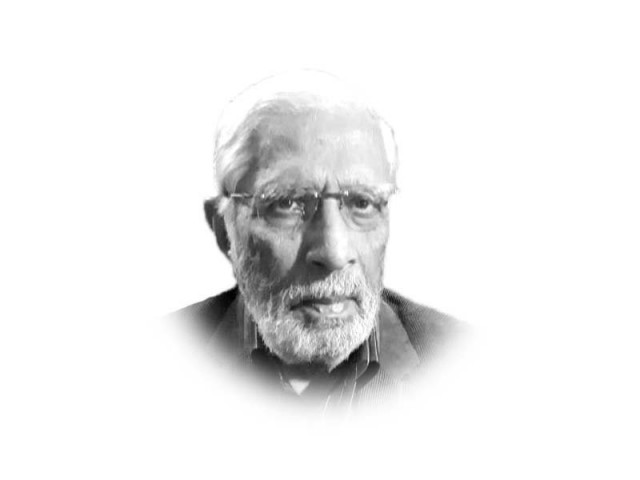Economy needs tabdeeli
The economy is tottering because of technological backwardness, poor human resources and declining competitiveness

The writer served as Executive Editor of The Express Tribune from 2009 to 2014
Cash flow savings during the life of the 3-year PRGF were estimated at $2.7 billion, with significant savings during the subsequent decade, thereby removing the spike in debt service commitments.
The PRGF was immediately followed by the Paris Club’s offer, made the same year, of a $12 billion “stock re-profiling” of loans for 38 years under which Pakistan was to pay nothing in debt servicing during the first 15 years. The stock re-profiling of debt for 38 years was to eventually provide us 30% debt write-off. The agreement included $0.5 billion loans write-off and debt swap by Canada, UK, Italy and Germany. Pakistan was the fourth country to get this unprecedented package from the Paris Club.
According to the announcement of the then finance ministry, the total stock of debt affected by this arrangement was in excess of $12 billion. Two-thirds of this debt related to concessional lending, and was to be rescheduled over 38 years, including a 15-year grace period. The remaining involved guaranteed commercial debt, and was to be rescheduled over 23 years, including a 5-year grace period.
This reorganisation differed from Pakistan’s previous rescheduling agreements not only in that it treated the entire stock of eligible debt, inclusive of previously rescheduled debt, but also in that the repayment terms for concessional loans were nearly twice as favourable as in previous arrangements.
The Paris Club agreement was seen as a major milestone for the government’s economic reform agenda. Here are some of the exuberant claims made by the then FM, Shaukat Aziz, on getting the debt re-profiling offer from the Paris Club: “We consider today’s agreement as providing Pakistan with a credible exit from its external debt problem and with sustainability”.
“This understanding resulted in a stock treatment of virtually all of Pakistan’s outstanding bilateral debt which would provide the much needed fiscal space for poverty alleviation and enhanced allocations for the social sector.”
The PRGF programme and the Paris Club stock re-profiling of debt were used by the banker-turned finance minister of the military regime to send the nation of a consumer spending spree that immediately caused manifold increase in oil-import bill, part of which was assuaged with the Saudi Arabia’s differed payment facility.
The success of the regime in tackling the balance of payments crisis, meanwhile, rested on attracting FDIs. This was achieved through large-scale privatisation of state-owned enterprises like telecom, power, energy, banks etc. This strategy has obvious limitations, as stock of public enterprises is limited and soon gets exhausted.
The current official managers of our economy who seem to expect the Fund to retrieve the national economy from the depths it has reached need to take a second look at what the last three Fund programmes have done to our economy.
Today, the economy is tottering because of mainly the constraints of technological backwardness, poor human resources and declining competitiveness even in traditional industries. Any break from this state of affairs will require long-term government intervention and well-developed industrial policy. However, the bias of free market economists against public-sector investment in new and emerging areas has prevented investment in the areas the private sector is unwilling to enter.
Indeed, the total break from strategy of the 1970s of establishing modern heavy industry has undermined Pakistan’s ability to change the structure of production, from low-value products towards high-value, technology-intensive production.
Published in The Express Tribune, January 18th, 2020.
Like Opinion & Editorial on Facebook, follow @ETOpEd on Twitter to receive all updates on all our daily pieces.














COMMENTS
Comments are moderated and generally will be posted if they are on-topic and not abusive.
For more information, please see our Comments FAQ